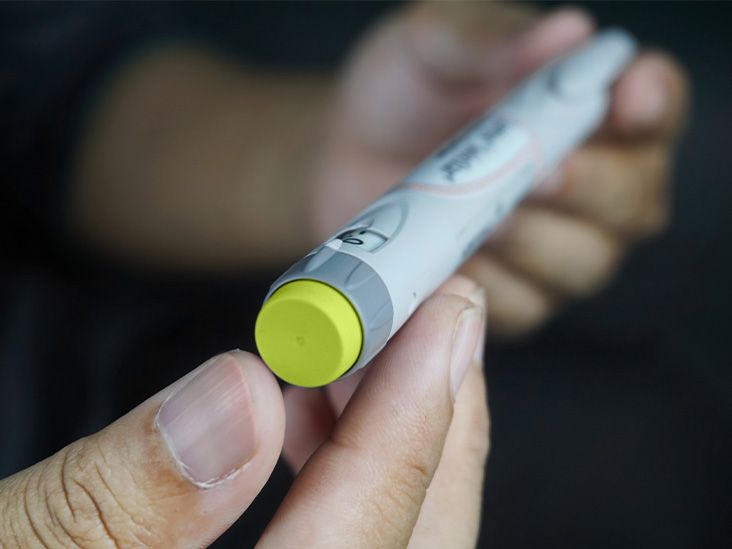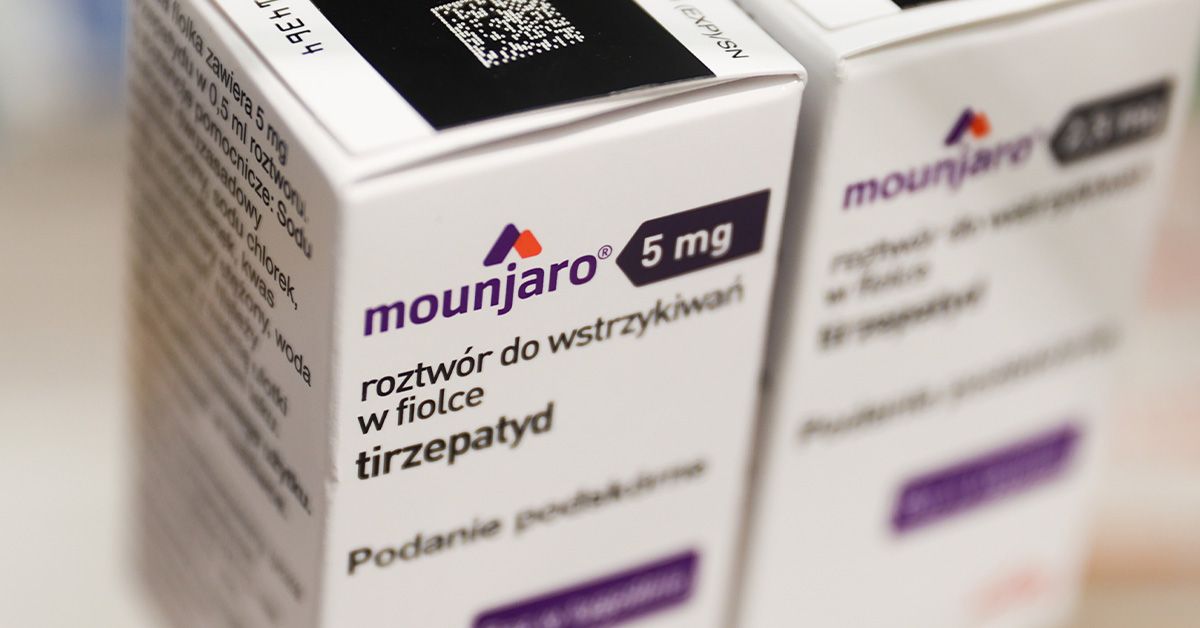- GLP-1 medications such as Wegovy and Ozempic were associated with a reduction in diagnoses of depression and anxiety in a new report.
- The report observed the connection in the medical records of over three million people with diabetes and nearly one million taking GLP-1 drugs for weight loss.
- The results of the report suggest a mental health benefit for this class of drugs beyond diabetes health and weight control.
GLP-1 agonist diabetes drugs have found a second use as weight-loss medications. Now, a new study from electronic medical records company Epic reports that their use also corresponds to a reduction in depression and anxiety.
Five GLP-1 drugs were linked to reduced depression and anxiety in people with diabetes, compared with people who were not taking GLP-1 medications.
This group of medications is based on related compounds, all of which are glucagon-like peptide-1 (GLP) receptor agonists that mimic the natural GLP-1 intestinal hormone. In doing so, they produce insulin after eating, helping to reduce blood sugar. They also slow the emptying of the stomach and promote a sensation of being full, leading to a reduction in appetite.
The medications are generally injectable, although oral versions are also available.
The most well-known GLP-1 drugs, Wegovy and Ozempic, are based on semaglutide. Other GLP-1 agonist compounds tested in the study are liraglutide, dulaglutide, and exenatide, as well as tirzepatide that mimics a second intestinal hormone, gastric inhibitory polypeptide, or GIP, in addition to GLP-1.
People with diabetes taking tirzepatide were 65% less likely to be diagnosed with depression and 60% less likely to have anxiety, compared to people not taking GLP-1 drugs. People with diabetes who were taking semaglutide were 45% less likely to be diagnosed with depression, and 44% less likely to have anxiety.
Two of the drugs, semaglutide and liraglutide, were assessed as regards depression and anxiety in people without diabetes.
For people who do not have diabetes, only semaglutide was associated with a reduction in depression and anxiety, compared to people who were not on GLP-1 medications.
There was no statistically significant improvement for people taking liraglutide.
The study was undertaken by Epic Research, an investigative branch of Epic, one of the largest holders of electronic medical records in the U.S. Two teams of in-house researchers analyzed anonymized patient data, coming to the same conclusions.
The study analyzed patient records for 3,081,254 people with diabetes and 929,174 without diabetes, who were taking the drugs for weight loss. The researchers factored in a range of variables to eliminate confounding influences on their results.
The study is published by Epic Research.
“The results suggest a potentially new therapeutic benefit of GLP-1 medications beyond their established use for glucose control and weight management,” said general practitioner with Zava, Dr. Kathryn Basford, who was not involved in the research.
Dr. Crystal Wyllie, also a general practitioner with Zava, who was also not involved in the research, noted that the study “goes some way in addressing concerns raised by the FDA [U.S. Federal Food and Drug Administration] about depression and suicidal ideation associated with semaglutide, as it suggests that these concerns may not be directly linked to these specific weight-loss treatments.”
In early January 2024, the FDA released an update regarding their investigation of
“Our preliminary evaluation has not found evidence that use of these medicines causes suicidal thoughts or actions,” the agency concluded.
Dr. Mir Ali, medical director at the MemorialCare Surgical Weight Loss Center, who was not involved in the study, was not surprised by the findings, saying, “There were only a few case reports and there’s hundreds of thousands of patients on these medications.”
One question left unanswered for now is whether the reduction in depression and anxiety diagnoses are a direct result of the medication.
Dr. Basford said the study “doesn’t definitively clarify whether these improvements are due to the biochemical effects of the medicines or are a result of improved self-esteem. I would be interested to see further research in this area.”
With acknowledged benefits for people with diabetes, having first been approved for use in 2005, GLP-1 drugs for weight loss may re-position overweight and obesity in a clearly medical context, with the potential of reducing the historical stigma associated with these conditions.
“It’s a paradigm shift that we’re thinking of obesity not as a failure on the patient’s part to control their habits, but more of a chronic disease, and treating it like any other chronic disease such as diabetes or high blood pressure, arthritis, or other diseases that people readily will say is not the patient’s fault,” Dr. Ali said.
“My hope is that these treatments will allow patients to live healthier, happier lives — whatever weight they finally achieve,” said Dr. Wyllie.
“We need to recognize obesity as a multifaceted condition that requires interventions that address both the physical and psychological needs of the patient,” Dr. Basford added.
Of the 13 GLP-1 medications listed by the FDA, only three, Wegovy (semaglutide), Saxenda (liraglutide), and Zepbound, (tirzepatide), are officially listed as approved for weight loss. However, they are commonly prescribed “off-label” for this purpose.
Dr. Ali explained that the lack of official approvals in this case may be less than they seem. “That’s just a drug company strategy for getting a broader indication for these medications — rebranding them and marketing them for weight loss.”
The cost of a GLP-1 medication may be intimidating in that one needs to remain on the drug long-term to maintain its effect for diabetes, weight loss, or perhaps a reduction in depression and anxiety.
Dr. Ali noted that “It is difficult to get it covered by most insurance companies,” but said many will pick up the tab if the individual meets medical qualifications. For weight loss, for example, one needs a Body Mass Index of 30 or above to obtain coverage from some insurance carriers.













